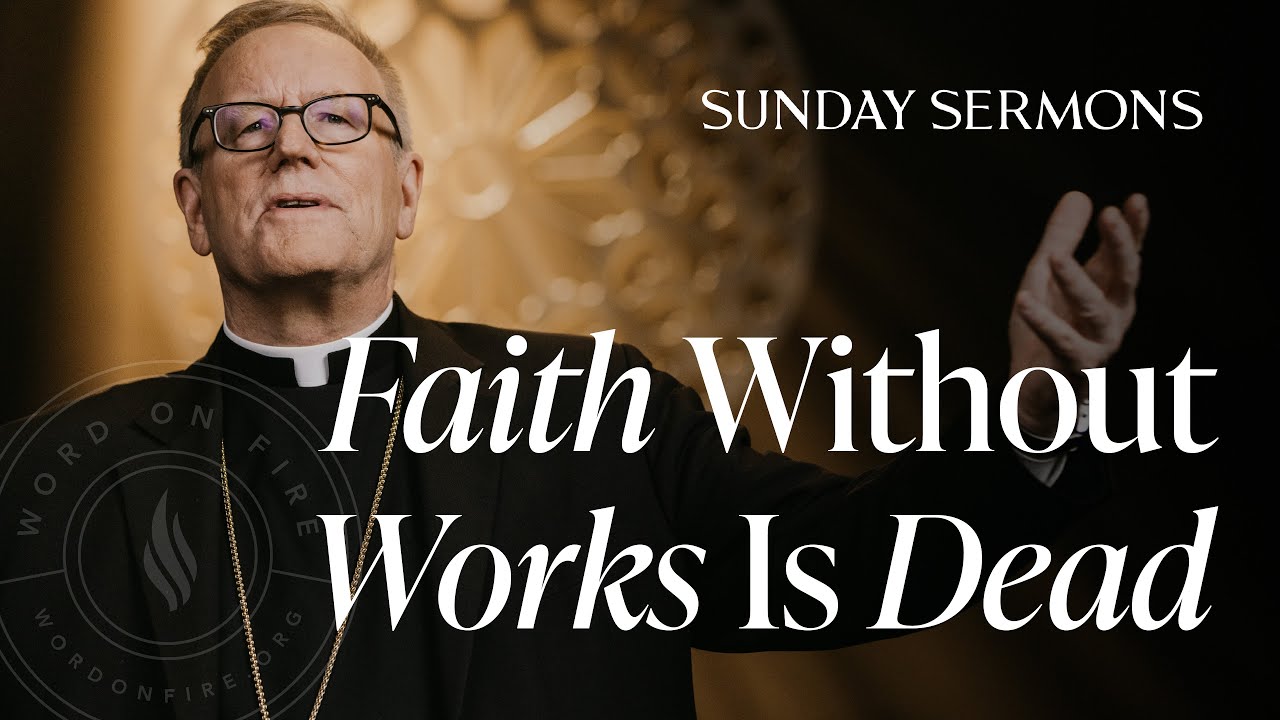Episode 1: Tradition, Scripture, Magisterium (Not Bible Alone)
Summary
TLDRIn this video, Dallas from Modern Catholic explores the concept of 'sola scriptura' or 'Bible alone' doctrine, contrasting it with the Catholic view of a three-legged stool of authority: Scripture, Tradition, and Magisterium. He discusses the limitations of relying solely on the Bible, such as its silence on modern issues and the lack of a self-declaration within the Bible as the sole authority. Dallas also highlights the importance of oral tradition and the Church's magisterial teachings, guided by the Holy Spirit, to address new challenges and maintain the richness of the Christian faith.
Takeaways
- 📜 The video discusses the early Christian Church's approach to spreading the faith, focusing on the Book of Acts, chapter 15.
- 🔍 It highlights the debate between the necessity of becoming Jewish (including circumcision) to be a Christian and the broader acceptance of Gentiles.
- 🌟 The video introduces the concept of 'Scripture, Tradition, and Magisterium' as the three-legged stool of Catholic authority.
- ✝️ It contrasts the Catholic view with 'sola scriptura', the Protestant belief that the Bible is the sole authority for Christian faith and practice.
- 📚 The video points out that 'sola scriptura' has only been popularized in the last 500 years, whereas Christianity is over 2000 years old.
- 🤔 It questions the validity of 'sola scriptura' by noting that the Bible does not explicitly declare itself as the sole authority and that it addresses situations differently than modern contexts.
- 📖 The script references Saint Paul's second letter to the Thessalonians, emphasizing the importance of oral tradition alongside written scripture.
- 🔑 The video explains that the Magisterium, or the official teaching authority of the Church, is essential for interpreting and applying Christian teachings to new situations.
- 🕊️ It argues that the early Christian community, which did not have a complete Bible, still lived a rich Christian life, suggesting that the Bible is not the only source of Christian understanding.
- 🙏 The presenter, Dallas, invites viewers to consider these points as part of the broader truth, beauty, and goodness of the Catholic Christian faith.
Q & A
What is the main topic of the video by Dallas from Modern Catholic?
-The main topic of the video is the discussion of the authority of God in Christianity, specifically contrasting the Catholic view of Scripture, Tradition, and Magisterium with the Protestant doctrine of Sola Scriptura.
What does the term 'Sola Scriptura' mean?
-Sola Scriptura is a doctrine held by some Christian denominations, which asserts that the Bible alone is the only source of divinely revealed truth and the only authority for Christian faith and practice.
Why does Dallas argue that 'Sola Scriptura' does not have a solid foundation?
-Dallas argues that 'Sola Scriptura' does not have a solid foundation because the Bible does not specifically address modern situations, it does not claim itself to be the sole authority, and there were early Christians who lived a Christian life without a complete Bible.
What is the significance of the Book of Acts 15 in the video?
-The Book of Acts 15 is significant because it describes the first council of the apostles, where they met to decide how to bring people into the Christian church, highlighting the importance of tradition and council decisions in addition to scripture.
What is the 'three-legged stool' analogy mentioned in the video?
-The 'three-legged stool' analogy refers to the Catholic belief that the authority of God is supported by three pillars: Scripture, Tradition, and Magisterium, each providing support and balance to the understanding of Christian faith.
What does the term 'Magisterium' refer to in the Catholic Church?
-In the Catholic Church, 'Magisterium' refers to the teaching authority of the Church, exercised by the Pope and the bishops in communion with him, which is guided by the Holy Spirit to discern and proclaim the truth of the faith.
Why does the video mention Saint Paul's second letter to the Thessalonians?
-The video mentions Saint Paul's second letter to the Thessalonians because it contains a verse that supports the idea of oral tradition being authoritative, alongside written scripture, which challenges the concept of Sola Scriptura.
How does the Catholic Church view the development of Christian doctrine over time?
-The Catholic Church views the development of Christian doctrine as a process guided by the Holy Spirit, where the Church, through Scripture, Tradition, and Magisterium, discerns and articulates the faith in response to new challenges and situations.
What is the role of the Holy Spirit in the Catholic understanding of Church teaching?
-In the Catholic understanding, the Holy Spirit guides the Church's leaders in discerning and articulating the truth of the faith, ensuring that the teachings of the Church remain true to the deposit of faith handed down from the apostles.
How does the video address the issue of different interpretations of the Bible among Christians?
-The video addresses the issue by pointing out that even among those who believe in Sola Scriptura, there are varying interpretations of the Bible, suggesting that additional guidance beyond the written text is necessary for a unified understanding of the faith.
Outlines

This section is available to paid users only. Please upgrade to access this part.
Upgrade NowMindmap

This section is available to paid users only. Please upgrade to access this part.
Upgrade NowKeywords

This section is available to paid users only. Please upgrade to access this part.
Upgrade NowHighlights

This section is available to paid users only. Please upgrade to access this part.
Upgrade NowTranscripts

This section is available to paid users only. Please upgrade to access this part.
Upgrade NowBrowse More Related Video

Magisterium Fungsi Interpretasi: Transmisi dan Interpretasi (2/3) | BKS2-19

What is the Catholic Magisterium?

Why Be Catholic and Not Just Christian?

Vatikan II Bukan Magisterium? | TJ: Pastor Bisa Salah

Tradisi, Alkitab, Magisterium: Tiga Pilar? | Transmisi dan Interpretasi

Faith Without Works Is Dead - Bishop Barron's Sunday Sermon
5.0 / 5 (0 votes)